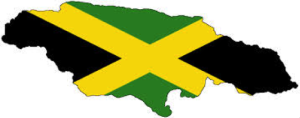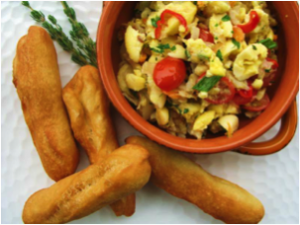 As a native of Jamaica, my anticipations of returning home are always filled with excitement and joy. I think of visiting family members, activities and events and the food. While this trip is filled with excitement and joy it is also filled with a bit of nervousness and fear. For the very first time, I will witness the effects of human trafficking on my island home of Jamaica.
As a native of Jamaica, my anticipations of returning home are always filled with excitement and joy. I think of visiting family members, activities and events and the food. While this trip is filled with excitement and joy it is also filled with a bit of nervousness and fear. For the very first time, I will witness the effects of human trafficking on my island home of Jamaica.
In 2007, Shared Hope published the Demand Report which is a “comparative examination of Sex Tourism and Trafficking in Jamaica, Japan, the Netherlands, and the United States.” Through this report I was exposed to the harsh reality and truth that sex trafficking occurs on the small island of Jamaica. In addition to the Demand Report, I delved into the Trafficking In Persons (TIP) Report, to further my knowledge on sex trafficking in Jamaica. The TIP report “represents an updated, global look at the nature and scope of trafficking in persons and the broad range of government actions to confront and eliminate it.” Although Jamaica was not included in the first two years of the publication of the TIP report, since its inclusion in 2003, Jamaica has fluctuated from a tier 2, to a tier 2 watch list to a tier 3, the lowest rank possible.
As a child growing up, I do not recall ever hearing or even witnessing anything that can be identified as human trafficking. I do remember hearing conversations about “go-gos” which is the equivalent to a stripper, but these were always adult women. In fact, “go-gos” are looked down upon by many citizens of Jamaica. Since my own trafficking ordeal, I have returned to the island four times and still didn’t see any signs of trafficking. Based on the two afore-mentioned reports, it is evident that trafficking exists on the island despite me not seeing any evidence. Sex trafficking takes a different form in Jamaica compared to America. In America, we have the standard forms of trafficking: pimp control, gang control, familial and survival sex. In Jamaica, sex trafficking mostly takes the form of familial, survival sex and sex tourism. With Jamaica being a third world country, I will definitely conclude that the major reason human trafficking continues to exist is due to the lack of economic opportunities. According to the Demand Report, many residents of Jamaica demonstrate and verbalize their belief that the severe economic situation of Jamaica forces a culture of “making do.” This culture of “making do” leads girls into sexual activity at an early age either by the idea of an opportunity or a better life or through force by parents or guardian as outlined in the Demand Report .
This trip, I will be visiting two homes that provides sevices to victims of sex trafficking (funded by Shared Hope International) on the island, in addtion to visiting some of the places where trafficking occurs and speaking with survivors. I am not sure I am ready to accept this reality. We all know abuse and injustice occurs but we don’t have to deal with it, as we simply place it to the back of our minds. I can no longer leave it in the back of my mind. I am preparing to accept the weigh of confronting, in person, that my country and my people are being scarred by sexual exploitation and violence.
I am really looking forward to speaking with students and survivors on the topic of “overcoming adversity.” Wether it is being a victim of sex trafficking or facing economic hardship, we are all faced with some forms of adversity. Many times, young people simply need a little encouragement and support when faced with adverstity instead of being rediculed. Therefore, I am happy to share about my own adversity, examples of how I am overcoming it and some words of encouragement.
 I am very honored to join Shared Hope in Jamaica as we conduct a site visit to our Jamaician partners. I will be blogging while I am there so check back as I take this journey of an abnormal return home. Who knows, you just maybe offered a plate of ackee and saltfish (the national dish) and some festival similar to the picture on your right.
I am very honored to join Shared Hope in Jamaica as we conduct a site visit to our Jamaician partners. I will be blogging while I am there so check back as I take this journey of an abnormal return home. Who knows, you just maybe offered a plate of ackee and saltfish (the national dish) and some festival similar to the picture on your right.






